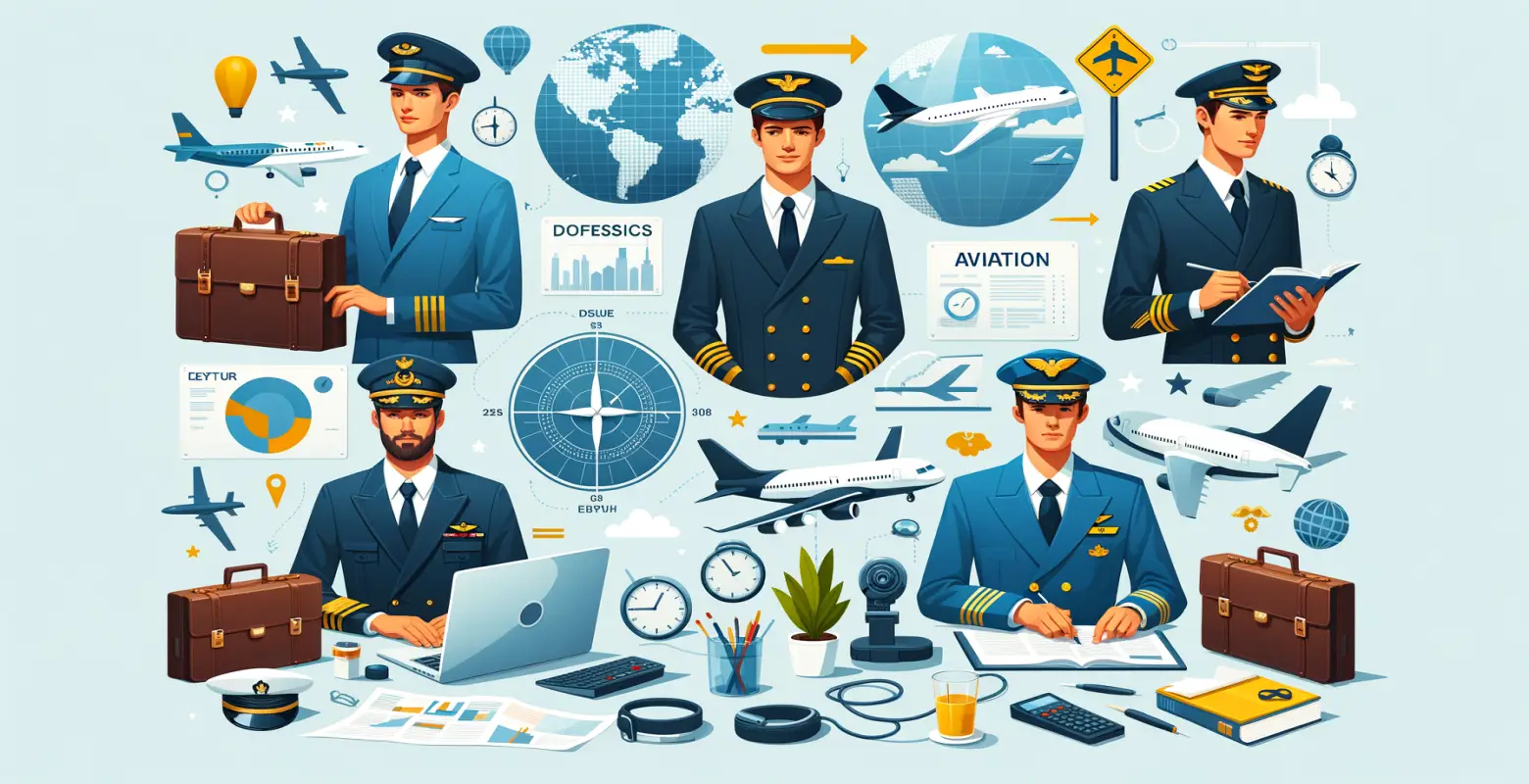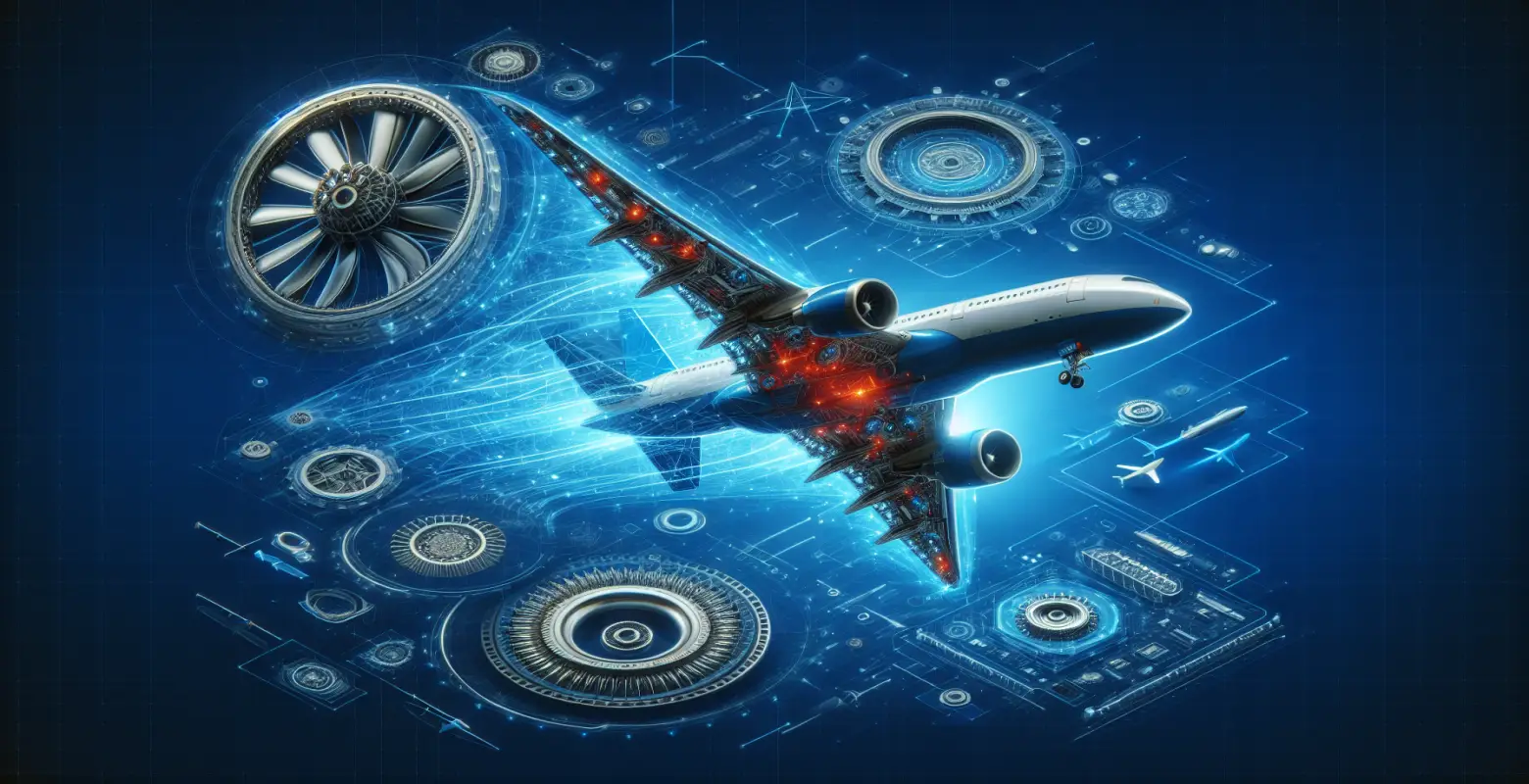The most sought-after professions in aviation
Introduction
In today's rapidly evolving world, aviation plays a key role in the global economy and communication. The aviation industry not only enables fast transportation of people and goods over vast distances, but also contributes to technological advancement and the creation of new jobs. As technology continues to advance and the demand for aviation services grows, the aviation job market is constantly changing. Therefore, it is worth examining which professions in this industry are currently most sought after and what skills are crucial to succeed in aviation.
The Role of Pilots in Modern Aviation
Pilots are an integral part of every flight and play a crucial role in the aviation industry. They are responsible for safely operating an aircraft, which requires not only excellent knowledge of technology but also the ability to make quick and accurate decisions in stressful situations. Over the past few years, the demand for pilots has significantly increased, especially in developing regions where economies are rapidly growing and airlines are expanding their fleets.
According to the International Air Transport Association (IATA), the aviation industry will need around 635 thousand new pilots worldwide by 2036. This growth is driven by the development of low-cost airlines and the opening of new routes, especially in Asia and the Middle East.
However, being a pilot is also a challenge. It requires candidates to have advanced education, licenses, and continuous training to stay up to date with the latest technologies and safety procedures. The increasing automation in cockpits does not diminish the importance of pilots but rather changes their role to a more supervisory and managerial one.
Aerospace Engineers and Their Importance
Aerospace engineers are another professional group that plays a key role in the aviation industry. Their task is to design, test, and maintain aircraft and aviation systems. As aviation technology becomes increasingly advanced, the demand for highly skilled engineers continues to rise.
These engineers are responsible for innovations that enhance flight safety, reduce fuel consumption, and minimize the environmental impact of aviation. In the context of global trends such as sustainable development and climate change, their work is becoming increasingly important.
The challenges facing aerospace engineers include integrating new technologies such as artificial intelligence and automation, as well as developing more efficient and environmentally friendly jet engines. Therefore, individuals interested in this career path should focus on acquiring knowledge in modern technologies and exact sciences.
Cabin Crew and Customer Service
Cabin crew, including flight attendants, are another professional group essential for the operation of any airline. Their main task is to ensure the safety of passengers and provide high-quality service during flights. In an era where airlines compete not only on price but also on service quality, the role of cabin crew is becoming increasingly significant.
As the number of passengers worldwide continues to grow, the demand for qualified cabin crew also increases. Those working in this profession must possess communication skills, be able to handle crisis situations, and be familiar with safety procedures. Additionally, knowledge of several foreign languages is often required, especially in airlines serving international routes.
Working as cabin crew can be demanding but also offers many benefits, such as the opportunity to travel and experience different cultures.
Aviation Safety Specialists
In an era of global threats and increasing air traffic, aviation safety specialists are becoming essential. Their task is to ensure that all aviation operations comply with international safety standards and protect against threats such as terrorism and cyber attacks.
This profession requires not only in-depth technical knowledge but also analytical skills and knowledge of aviation law regulations. These specialists must be able to quickly respond to incidents and collaborate with various governmental and international agencies.
With the dynamic development of technology and the growing number of threats, aviation safety specialists will play an increasingly important role in the future of the aviation industry.
Air Traffic Controllers
Air traffic controllers are another key profession in aviation. They are responsible for managing aircraft traffic on the ground and in the air, ensuring the safety and efficiency of aviation operations. Their work is extremely stressful and requires not only excellent concentration but also the ability to make quick decisions.
As air traffic worldwide continues to increase, the need for qualified air traffic controllers is also growing. According to Eurocontrol reports, the European agency responsible for managing air traffic, the number of flights in Europe is expected to increase by about 50% by 2030, creating a huge demand for controllers.
To become an air traffic controller, candidates must undergo rigorous training and pass specialized exams. This job is demanding but also offers attractive remuneration and job stability.
The Future of Aviation Professions
The aviation industry faces many challenges, but also tremendous opportunities. With the development of new technologies such as drones or electric aircraft, new career paths and employment opportunities are emerging. Professions related to drone traffic management, engineering of new aviation technologies, or airport sustainable development management may become key elements of the future aviation job market.
It is important for individuals interested in a career in aviation to be prepared for continuous learning and adaptation to changing market conditions. Investing in education and developing technical and soft skills will be crucial to meet the demands of the modern aviation industry.
Summary
Aviation is a rapidly growing industry that offers many career opportunities. From pilots to engineers to safety specialists, each of these professions plays a crucial role in ensuring the safe and efficient functioning of the aviation industry. As technology and global trends continue to evolve, aviation professions will require employees to continuously improve and adapt. For those willing to take on these challenges, the aviation industry offers exciting and rewarding career paths.






Number of comments: 0